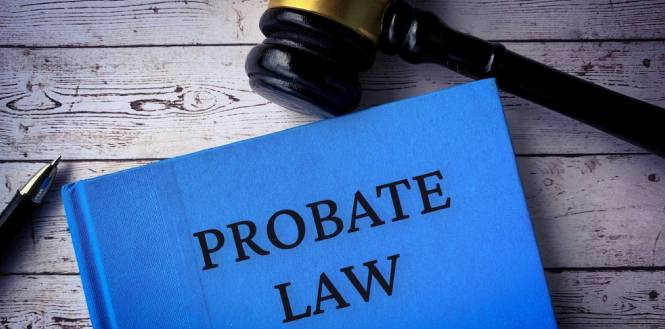If you are the deceased person’s spouse, child, or parent, you may be entitled to receive assets upon the death of the person. Probate can be a complicated process, and it is important to consult with an estate law firm if you have questions or concerns about the probate process. If you need help with probate law, get in touch with an estate lawyer in Rocklin.
What is Probate?
Probate is the legal process of administering a person’s estate after their death. It includes distributing their assets to their beneficiaries and paying any debts and taxes owed.
Get a Free Consultation Today
What Are the Steps of Probate?
Generally, the process probate goes as follows:
- The executor or administrator of the estate files a petition with the court.
- The court appoints an executor or administrator for the estate.
- The executor or administrator collects the assets of the estate and pays any debts and taxes owed.
- The executor or administrator distributes the assets of the estate to the beneficiaries.
Note: The steps of probate vary from state to state, but generally, the process is similar. Contact us to learn better about your situation.
How Does Probate Court Work?
The probate court appoints an executor or administrator to administer the estate and distribute the assets to the beneficiaries.
What Are Probate Assets?
Probate assets are those assets that are subject to the probate process. It includes all property owned by the deceased person that is not jointly owned, has no designated beneficiary, or is not held
in a trust. There will be a probate assets list that covers all the assets.
Some examples of assets that may be in probate are:
- A house
- A car
- Bank accounts
- Stocks
- Bonds
- Personal property
Do I Need To Go Through Probate?
It depends. If the deceased person left a will, then their estate will need to go through probate. But if the deceased placed their assets in a living trust, probate isn’t necessary.
The probate process can be time-consuming and expensive. It is important to hire an experienced probate lawyer to help you through the process.
Who Are Involved in the Probate Process?
The probate process involves the executor or administrator of the estate, the beneficiaries of the estate, and the court.
The Administrator of the Estate
The administrator of the estate is the person appointed by the court to oversee the probate process.
Beneficiaries of the Estate
Beneficiaries of the estate are the people who are entitled to receive the assets of the estate.
Probate Court
The court is the legal body that oversees the probate process.
What is a personal representative?
A personal representative is a person who is appointed by the court to oversee the probate process. In most cases, the personal representative is an individual who has a close relationship with the deceased, such as a spouse or child. However, in some cases, the court may appoint someone else to be the personal representative if no family members are available. A personal representative is the same as an executor or administrator.
What Are the Estate’s Obligations to Estate Creditor?
The executor or administrator of the estate is responsible for paying any debts and taxes owed by the estate to the creditor. The administrator may use estate assets to pay these debts and taxes.
How Long Does It Take to Deal with Probate?
The time it takes to complete the probate process varies depending on the size and complexity of the estate. Generally, the process can take anywhere from a few months to a year or more.
Factors that Make Probate Last Longer
Some factors that can make probate last longer are:
- A large and complex estate
- Multiple beneficiaries
- Disagreements among beneficiaries
- Creditors
Factors that Shorten the Probate Process
Some factors that can shorten the probate process are:
- A small and simple estate
- All beneficiaries agree on the distribution of assets
- No creditors
How Do You Get Around Probate?
There are a few ways to avoid probate. It includes joint ownership of property, designation of beneficiaries, and setting up a trust.
Is Probate Harder Without a Will?
If the deceased person did not leave a will, then their estate may still need to go through probate. The probate process may be more complex without a will, but an experienced probate lawyer can still help you through the process.
How a Probate Lawyer Can Help You
If you are the executor or administrator of an estate, consider hiring a probate lawyer to help you with the legal process. A probate lawyer can help you with tasks such as filing the necessary paperwork with the court, distributing assets to beneficiaries, and paying debts and taxes owed by the estate.
Probate attorneys are knowledgeable in probate law; they know what steps need to be taken and how best to go about it. They also know how best to communicate with family members and heirs so that everyone understands what’s going on and feels comfortable with it all.
Conclusion
A probate action requires a court order and may take many months or even years to complete. It is different from a will, which is just a document that you create before your death and make it clear how you want your property distributed after you die. If you are expecting to face probate, hire a probate lawyer to help you with the legal process. Contact Filippi Law Firm P.C. now.
Filippi Law Firm, P.C., provides legal services in estate planning, probate, trust administration, trust litigation, and personal bankruptcy in the greater Sacramento area, with a focus in Rocklin, Roseville, Lincoln, and Granite Bay. Give us a call at (916) 333-7910 or fill out the contact form to get in touch with our office. Consultations are free, and they can be done over the phone, via Zoom, or in person at our office in Rocklin. Prepare for your future and work with the best estate planning attorneys today.





